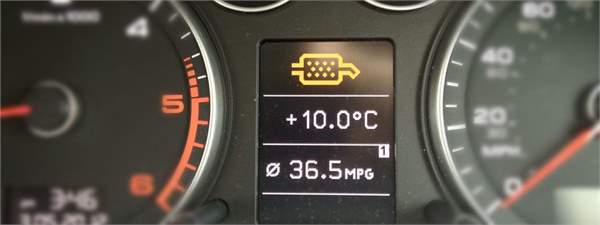Something I hear all too frequently, even from experienced people in the motor trade is that "engine oil is engine oil. it's all the same stuff and the reason for all these different types and grades is just the oil companies trying to sell more.....just stick the cheapest stuff in, you'll be grand" Now, if your car is 10 or 15 years old they're probably dead right. The very cheap 'Extra Slippy Oil For Engine' like the one pictured above (that we made up) may be absolutely grand. But....and it'a big but, If your car is much newer or has a DPF filter you will most definitely not be grand or to be more specific your engine will not be grand if you just lash any old stuff in there! That's not to say you should avoid cheap engine oil - far from it, what we're saying is that it's extremely important to pay attention to the oil grade and specifications as most modern cars have very specific requirements when it comes to engine oil. In layman's terms, if you use the wrong stuff there's a very real chance you'll damage your engine!
To explain why, we have to get a little bit geeky: Car manufacturers are continuously pushing the boundaries of technology to meet the increasingly strict emissions regulations placed upon them. So much so that in most current Euro 5 spec engines the manufacturers are actually using the oil inside the engine as an integral component of the emissions control systems on the car!....To understand how, first we need to take a quick look at Diesel Particulate Filters (DPF's): Diesel Particulate Filters are ceramic filters fitted in the exhaust system which trap soot and ash particles. Soot is carbon-based and is formed during combustion of the fuel. Ash is metal-based and forms when engine oil is burnt. DPF-equipped engines have a DPF-regeneration cycle in their operation – at this point fuel is injected into the exhaust which causes it to burn in the exhaust and DPF. This burns off the soot particles from the DPF but the metallic ash particles can not be removed. Over time the ash particles accumulate and will eventually block the DPF, requiring its replacement.

This is where the oil plays a part: Ash is formed by elements within the engine oil – oils that are specifically designed to work with DPFs are called "low SAPS" oils, which stands for low sulfated ash, phosphorus and sulphur. Standard engine oils ie the very cheapest stuff will produce far greater levels of metallic ash and will very very quickly block and wreck your car's DPF. So when you think that a new DPF could cost as much as £/€3000 and the correct "low SAPS" oil could cost as little as €/£25.00 it starts to become clear that "oil is not just oil"
At MicksGarage.com we offer 3 brands of engine oil in
KAST,
Total and
Castrol to cater for customers varying budgets and brand preferences. However, what's important to remember when shopping for oil for your car is not the brand or the price but the specification and that you buy the stuff that your car actually needs. The simplest way to do this is to use our oil finder - simply click on this link and enter you car's reg. You will only be shown oil that is suitable for your car.
Alternatively, take a look in your owners manual, find the oil grade and spec as outlined by the manufacturer and then browse our products matching that spec.